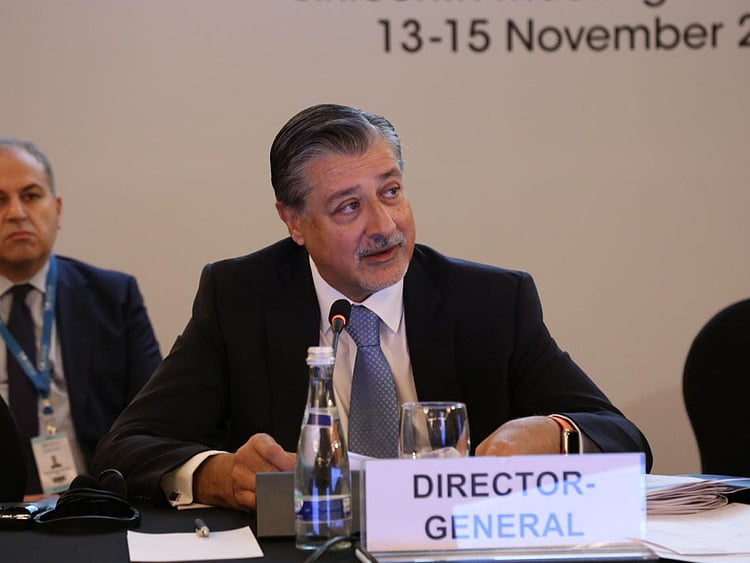Renewable energy to enhance food security across world
Many developing countries lose 30-40% harvest due to lack of storage facilities

Abu Dhabi: Adoption of renewable energy will help ensure food security across the globe, apart from fighting the climate change, a top official of the Abu Dhabi-based International Renewable Energy Agency (Irena) said here on Tuesday.
“Many developing countries lose 30 to 40 per cent of agricultural harvest due to lack of storage and processing facilities in rural areas,” said Adnan Z. Ameen, director-general of Irena on the sidelines of the 18th meeting of the agency’s Council, one of Irena’s two governing bodies.
He said renewable energy could power such facilities to avert such food waste.
The governments and businesses have to take urgent action to check climate change, he said while addressing the Council meeting that has brought together Irena member countries from across the world and observers to discuss the global energy transformation.
“The recent IPCC (Intergovernmental Panel on Climate Change) report released in October 2018 stated that urgent and unprecedented changes are needed to stop global temperatures from rising over 1.5° C. The IPCC highlighted the accelerated deployment of low-carbon energy technology and energy efficiency as central to decarbonisation strategy and called for fundamental shifts in investments and mindsets — further highlighting the relevance of our work in the energy transition,” Ameen said.
Irena’s latest statistics released in June 2018 showed that renewable energy generation worldwide increased by 6.7 per cent in 2016. Further, a record 167GW of the new capacity was installed in 2017, the biggest growth ever and 8.8 per cent increase compared to the previous year. Solar and wind accounted for 85 per cent of this growth.
“Our database of 17,000 real-life projects representing some 1,000GW of capacity in almost 150 countries indicates that they are well within the cost range of power generated by fossil fuels. Irena’s Renewable Power Generation Costs report also estimates that, by 2020, all currently commercialised renewable energy power generation technologies will be fully competitive with traditional sources. This is a watershed moment for the agency. I cannot underscore how important these cost reductions are,” Ameen said.
At the recent Global Climate Action Summit in September 2018, almost 400 companies, cities, states and regions set 100 per cent renewable energy or zero emissions targets. This included California — the host of the summit and the world’s fifth-largest economy — and businesses with collective annual revenues of $2.75 trillion (Dh10.09 trillion). This presents a significant opportunity as more and more stakeholders are turning to renewables to meet the need for cost-effective long-term energy supply, the director-general said.
“During the Clean Energy Ministerial meeting in Copenhagen in May this year, we released the first analysis of the market and industry trends on corporate sourcing of renewables, which is now taking place in 75 countries around the world. We found that market for corporate sourcing in 2017 reached about 465 terawatt-hours, which is almost the level of France’s total electricity demand. And this momentum is growing as more and more companies are coming on board,” he said.
UAE contributes heavily to Irena’s budget
The UAE as the host country of International Renewable Energy Agency (Irena) is heavily contributing the budget of the agency, a top Irena official said here on Tuesday.
“As of early November, we had received $16.6 million (Dh60.92 million) in assessed contributions, representing some 77 per cent of our core budget. Germany and the UAE have provided 100% of the 2018 core non-assessed funds in the amount of $9.66 million, and we obtained 100 per cent of the core non-assessed ‘other’ funding of $1.7 million for the biennium,” said Adnan Z. Ameen, director-general of Irena at the agency’s Council meeting.
Almost $10 million were received in contributions from Belgium (the Walloon government), European Commission, Germany, Italy, Japan, the Netherlands, Norway and the UAE, he said.
Sign up for the Daily Briefing
Get the latest news and updates straight to your inbox
Network Links
GN StoreDownload our app
© Al Nisr Publishing LLC 2026. All rights reserved.